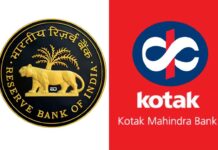The collaboration between Reliance and Disney to form a joint venture worth $8.5 billion has sparked significant interest within the Indian media landscape.
This partnership is poised to create the largest media entity in India, boasting an extensive array of TV channels, streaming platforms, and exclusive broadcasting rights for major cricket tournaments.
However, underlying this groundbreaking alliance lies a narrative of shifting valuations and strategic recalibrations, particularly concerning Disney’s trajectory in the Indian market.
Evolution of Disney’s Presence in India
Disney’s foray into the Indian media sphere gained momentum with its acquisition of 21st Century Fox in 2019, which paved the way for the integration of Disney’s existing properties with those of Star India, culminating in the formation of Disney Star.
This strategic merger positioned Disney as a dominant force in India’s media landscape, equipped with a diverse portfolio of content and broadcasting assets. Under the leadership of media mogul Rupert Murdoch, 21st Century Fox’s India operations were housed within Star India, setting the stage for Disney’s subsequent entry into the Indian market through its acquisition.
Disney’s presence in India was further solidified through the incorporation of Star India’s extensive network and programming into its portfolio, enabling Disney to tap into India’s burgeoning media market. This strategic manoeuvre allowed Disney to leverage Star India’s established brand and audience base, facilitating its expansion and influence within the Indian media landscape.
Also Read: Why Are Adani And Ambani Buying Bankrupt Companies?
Valuation Dynamics
While Star India commanded a valuation of approximately $15 billion during the initial stages of the joint venture, Disney’s stake in the Reliance-Disney partnership is currently valued at $3 billion.
This notable disparity underscores a significant decline in Disney’s valuation within the Indian market over a relatively short period. Such fluctuations shed light on the evolving dynamics and competitive pressures prevalent in the Indian media industry.
As reported by Business Today, “The overall value reflects a significant reduction in Disney’s valuation, which was estimated at $15-17 billion (media estimates) when Disney purchased 21st Century Fox in March 2019 and also much lower than earlier media estimate of $7-10 billion. Disney’s drop in valuation reflects the growing anticipated losses from its sports business, where rights costs have increased substantially,” says a report from Emkay Global.
The joint venture’s total valuation of $8.5 billion highlights the substantial investment and strategic importance attached to the collaboration between Reliance and Disney. This decline in valuation may be attributed to various factors, including shifts in market trends, changes in consumer behaviour, broader economic conditions, and challenges adapting to local market dynamics.
Strategic Implications
Disney’s decision to proceed with the terms of the joint venture, relinquishing a considerable portion of its stake to Reliance and Viacom18, suggests a strategic reassessment of its priorities in the Indian market.
Although specific motives behind Disney’s actions remain undisclosed, conjecture abounds regarding its potential strategic retreat from India amid broader challenges faced by the company on a global scale. Reliance’s acquisition of a 16.34% stake and Viacom18’s ownership of a 46.82% stake in the joint venture further underscore the strategic realignment within the Indian media landscape.
This strategic recalibration reflects the need for multinational corporations to adapt to changing market conditions and leverage partnerships to optimize their presence in dynamic environments.
The joint venture presents an opportunity for Disney to streamline its operations, mitigate risks, and capitalize on the strengths of its partners to drive sustainable growth in the Indian market.
Potential Motivations
Several factors may have influenced Disney’s rationale for entering into the joint venture with Reliance. According to Finshots, pressures stemming from Disney’s global operations, coupled with the imperative to redirect resources to core markets, might have compelled Disney to pursue a partnership that enables it to maintain a strategic presence in India while mitigating risks and optimizing its portfolio.
The joint venture serves as a strategic imperative for Disney to navigate the complexities of the Indian media market while leveraging Reliance’s extensive resources and Viacom18’s expertise in content creation and distribution.
The Reliance-Disney joint venture marks a significant milestone in the Indian media landscape, consolidating resources and expertise to establish an unparalleled media conglomerate.
However, the notable decline in Disney’s valuation within this partnership reflects the intricate dynamics and strategic considerations inherent in navigating fluctuating market conditions.
As Disney’s trajectory in India continues to evolve, the repercussions of this collaboration resonate throughout the media industry, underscoring the adaptability and strategic manoeuvring imperative for sustained growth and competitiveness.
Feature image designed by Saudamini Seth
Sources: The Telegraph India, Business Today, Finshots
Find the blogger: Katyayani Joshi
This post is tagged under: Disney, Disney India, Reliance, Murdoch, Rupert Murdoch, Star India, Viacom 18, Mukesh Ambani, stakes, calibration, global operations
Disclaimer: We do not hold any right, or copyright over any of the images used, these have been taken from Google. In case of credits or removal, the owner may kindly mail us.
Other Recommendations:
This Ex-Employee Of McDonald’s Is Now Richer Than Mukesh Ambani



































